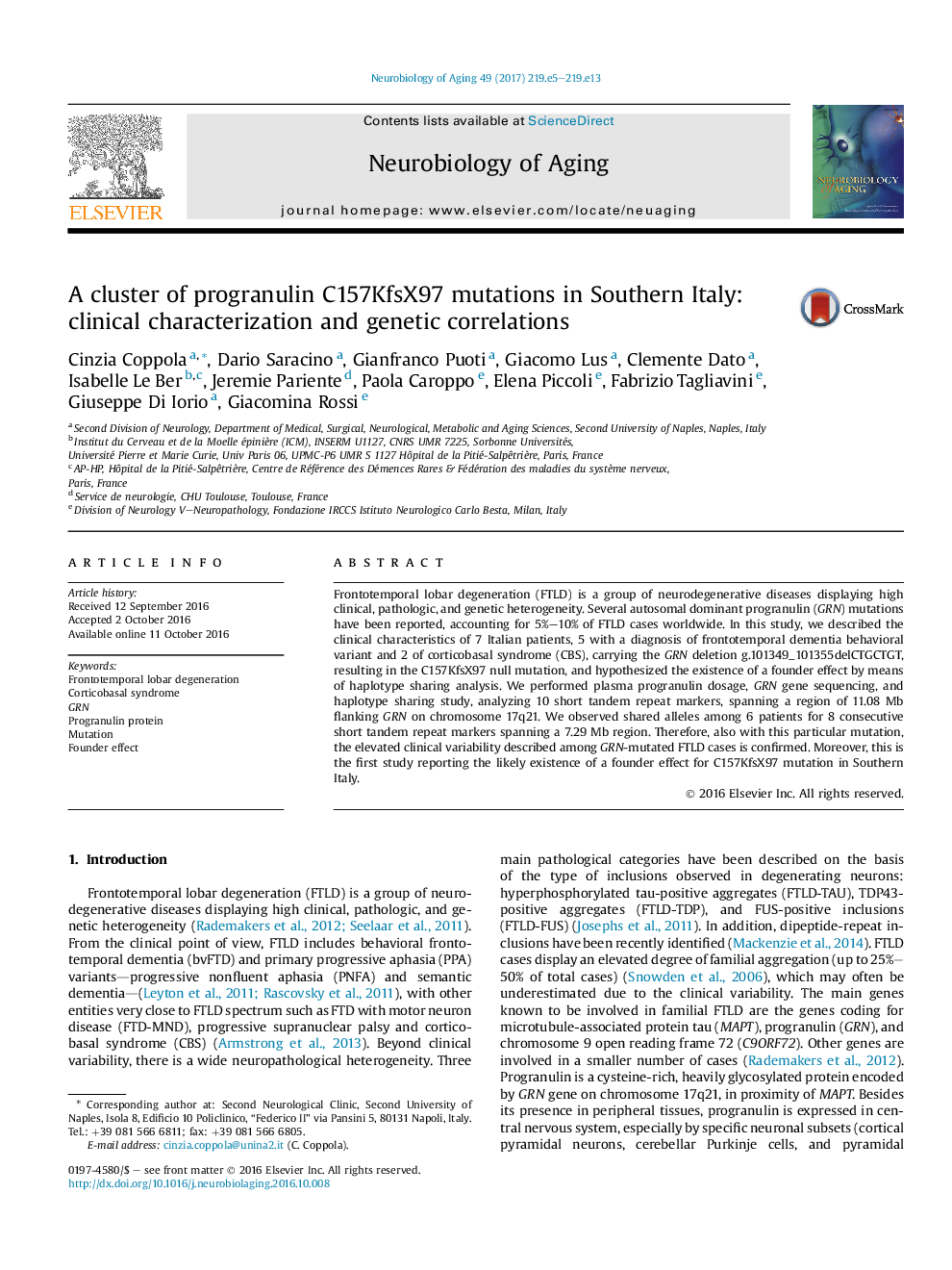| Article ID | Journal | Published Year | Pages | File Type |
|---|---|---|---|---|
| 4932896 | Neurobiology of Aging | 2017 | 9 Pages |
Abstract
Frontotemporal lobar degeneration (FTLD) is a group of neurodegenerative diseases displaying high clinical, pathologic, and genetic heterogeneity. Several autosomal dominant progranulin (GRN) mutations have been reported, accounting for 5%-10% of FTLD cases worldwide. In this study, we described the clinical characteristics of 7 Italian patients, 5 with a diagnosis of frontotemporal dementia behavioral variant and 2 of corticobasal syndrome (CBS), carrying the GRN deletion g.101349_101355delCTGCTGT, resulting in the C157KfsX97 null mutation, and hypothesized the existence of a founder effect by means of haplotype sharing analysis. We performed plasma progranulin dosage, GRN gene sequencing, and haplotype sharing study, analyzing 10 short tandem repeat markers, spanning a region of 11.08Â Mb flanking GRN on chromosome 17q21. We observed shared alleles among 6 patients for 8 consecutive short tandem repeat markers spanning a 7.29Â Mb region. Therefore, also with this particular mutation, the elevated clinical variability described among GRN-mutated FTLD cases is confirmed. Moreover, this is the first study reporting the likely existence of a founder effect for C157KfsX97 mutation in Southern Italy.
Related Topics
Life Sciences
Biochemistry, Genetics and Molecular Biology
Ageing
Authors
Cinzia Coppola, Dario Saracino, Gianfranco Puoti, Giacomo Lus, Clemente Dato, Isabelle Le Ber, Jeremie Pariente, Paola Caroppo, Elena Piccoli, Fabrizio Tagliavini, Giuseppe Di Iorio, Giacomina Rossi,
